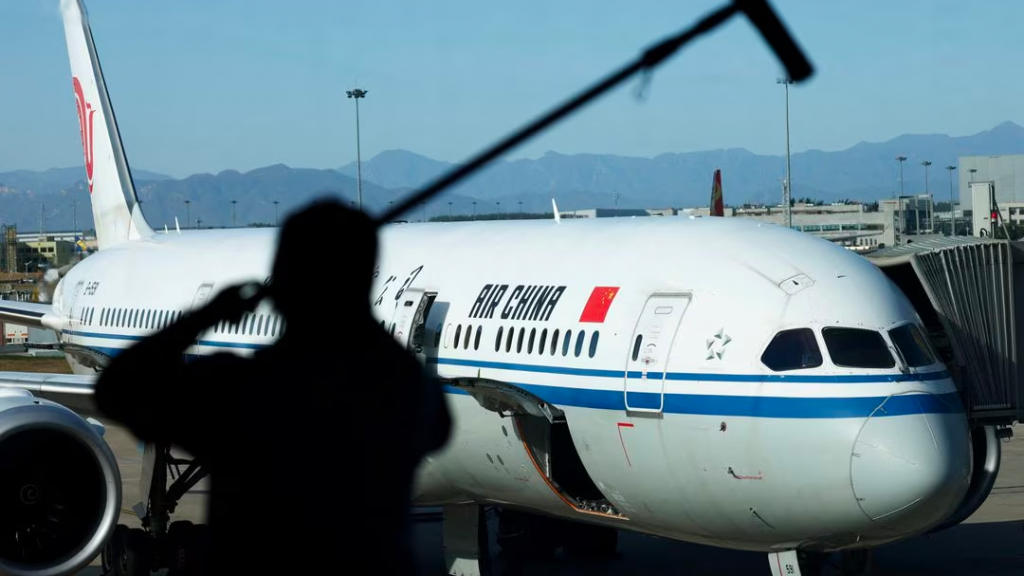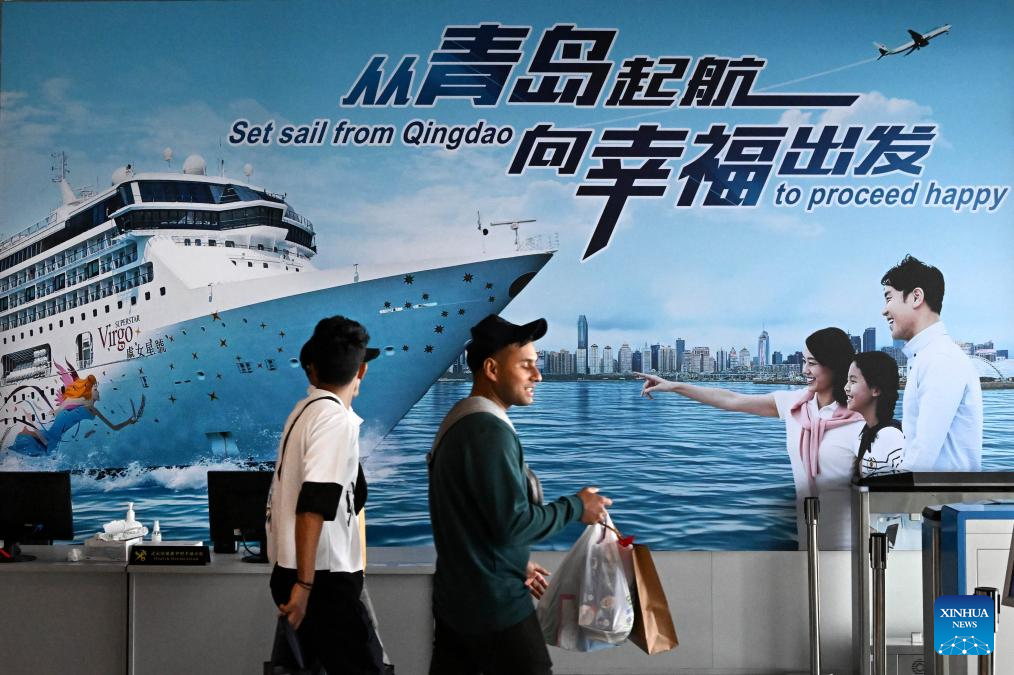Published: December 03,2023

An Air China plane is seen at the international airport in Beijing, China, October 19, 2023. /Reuters
In an increasingly fragmented world, where geopolitics influences the decisions made by governments, the introduction of policies aimed at promoting closer ties between nations and fostering shared prosperity is something that deserves attention.
On November 24, the Chinese Foreign Ministry announced the imminent start of a temporary visa-free entry for passport holders from France, Germany, Italy, the Netherlands, Spain, and Malaysia when visiting the world’s second-largest economy.
The new policy, that is set to run from December 1, 2023, to November 30, 2024, will allow individuals from the six nations to access Chinese territory without a visa and stay for a maximum of 15 days for business, leisure or transit.
The move, that comes after the resumption of a 15-day visa-free entry for citizens of Singapore and Brunei,follows China’s decision earlier this month to expand its visa-free transit policy to 54 countries to include citizens from Norway and the decision in summer to scrap all COVID-19 test requirements for inbound travelers.
This unprecedented decision confirms China’s relentless efforts of opening-up to the rest of the world, while also encouraging greater interaction and collaboration. This initiative not only simplifies travel to China, saving money for travelers and removing tedious bureaucracy, but also promotes greater economic integration between China and the countries involved, strengthening trade ties, and creating a favorable context for cross-border interaction.

People walk past a billboard at the passenger transportation center of Qingdao Cruise Terminal in Qingdao, east China’s Shandong Province, November 21, 2023. /Xinhua
The fact that the policy targets the five largest European Union economies by GDP is indicative of the importance that China places on a strong and healthy relationship with the bloc. The EU represents a fundamental partner for China because it offers a large market, technological and innovation collaboration, infrastructure projects, and cooperation on global challenges like climate change.
The policy will be conducive in energizing foreign private investment and in increasing the number of business visits to China. The possibility for senior executives of foreign entities to travel on short notice from the headquarters not only ensures that local branches are aligned with the overall corporate strategy but also helps CEOs to make measured judgements on how to better engage with the world’s second-largest economy.
Easier travel will also be conducive in facilitating a higher degree of cultural exchange between China and the European countries involved. This exchange, and the exposure to a different language context, will lead to a better understanding of each other’s cultures fostering tolerance, respect, and appreciation for diversity.
Visa-free access policies traditionally tend to attract a larger volume of tourists. The upcoming Christmas holiday, that is commonly considered a peak travel period, is the perfect moment of the year for foreign tourists to travel to China. An expected increase in the number of visitors could bring important benefits for the travel industry, strengthening the Chinese domestic economy through a boost in consumer spending and the creation of new jobs.
From a government-level perspective, the launch of a visa-free policy sets the ground for positive diplomatic relations between countries. In this sense, China’s decision can be seen as a gesture of goodwill and a desire for closer ties on political, economic, and cultural levels, as well as part of a strategy to enhance soft power, shaping a positive image of the country in the international community.
Too many times it has been said or written by foreign press that China is not an easy country to access due to “visa hassles,” “a unique payment systems” and “language barriers.” The announced visa-free policy, in addition to the recent acceptance of foreign credit cards for local mobile payment solutions and an increasingly widespread availability of client services in English, represents China’s loud and clear answer to such criticism.
Matteo Giovannini, a special commentator on current affairs for CGTN, is a financial professional at the Industrial and Commercial Bank of China and a member of the Global Young Leaders Dialogue
cgtn.com
 Africa -China Review Africa -China Cooperation and Transformation
Africa -China Review Africa -China Cooperation and Transformation
